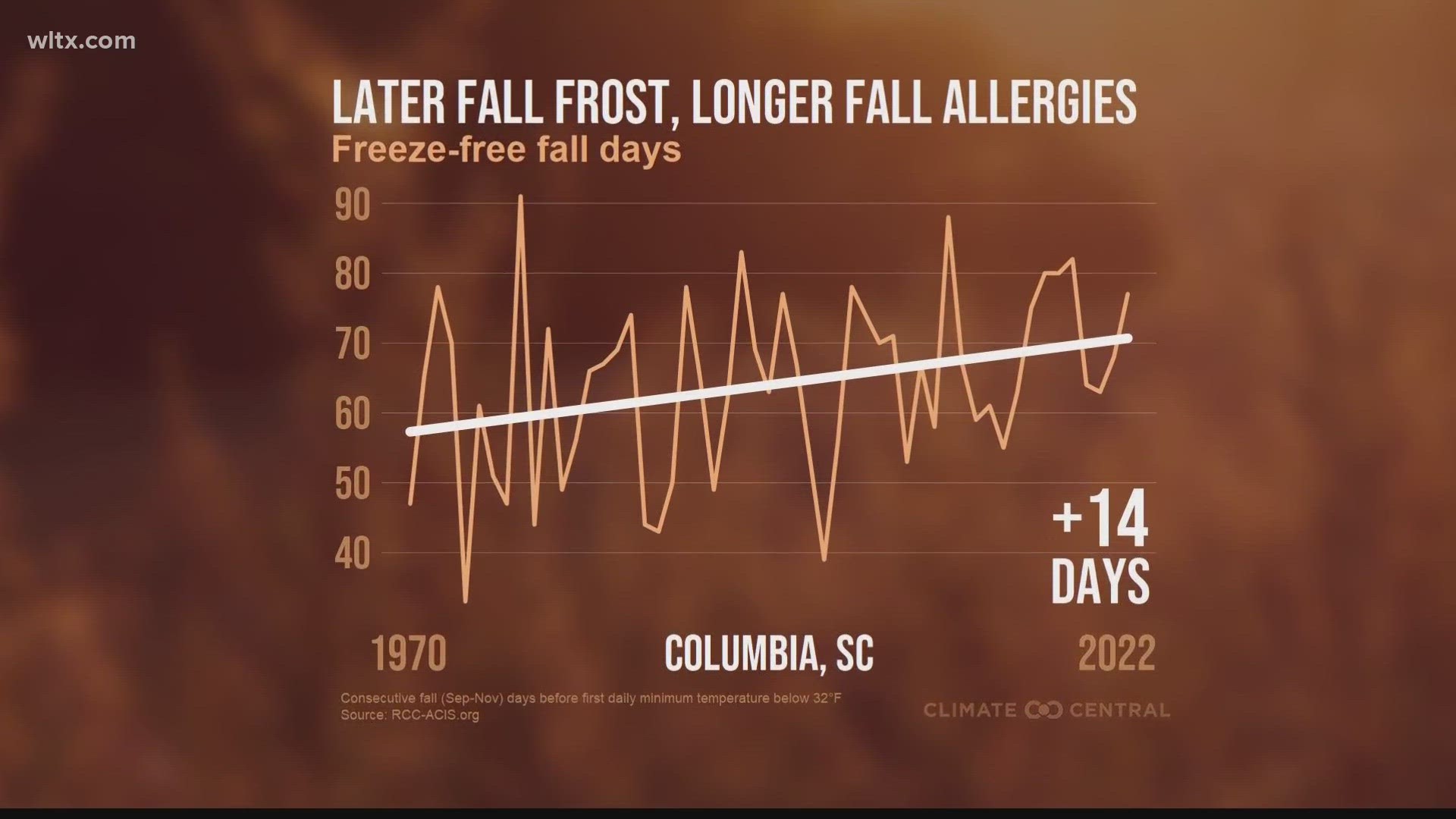COLUMBIA, S.C. — NOAA found this past September to be the warmest September on record. While some of us may be savoring the warmth, for those battling allergies, it's far from a pleasant ride.
Climate Central reports that since 1970, the warming trend in the fall season has extended Columbia’s freeze-free days by 14 days. There were similar results observed across the country, where freeze-free fall days were extended by an average of 11 days.
With more days before the first fall frost each year, plants, including ragweed, have an extended growing season. Ragweed pollen is notorious for fall allergies. In most parts of the U.S., this pesky pollen usually peaks in the late summer or early fall. According to the EPA, ragweed pollen is one of the prime suspects behind those miserable symptoms: runny noses, itchy eyes, and endless sneezing—all of which can last well into the fall months.
It is undeniable that rising temperatures are associated with an extended allergy season. This isn't just about a little extra sneezing; it's about the longer duration of discomfort for millions of people.
While the weather cannot be controlled, allergy sufferers can take steps to reduce their symptoms. Air purifiers, allergy medications, and pollen forecasts are all helpful in combating this extended allergy season.

